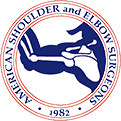Gregory P. Nicholson, MD, Fellowship Director
Grant E. Garrigues, MD
Nikhil Verma, MD
Brian J. Cole, MD
Chicago, IL 60612
Fellowship Description:
The fellow will be provided with an extensive clinical, surgical and academic experience related to the care and treatment of all aspects of Shoulder and Elbow Surgery. This includes advanced arthroscopic techniques for the management of all soft-tissue and traumatic injuries of the shoulder and elbow, as well as open reconstructive surgeries for arthritis, trauma, as well as soft tissue and bone deficiency. The fellow can anticipate an experience that includes more than 500 shoulder and elbow cases, extensive office evaluation of complex shoulder and elbow problems, and complimentary translational and basic science research projects during the fellowship year. Due to the support staff and activities of the faculty, the fellow can also expect participation and completion in no less than 6 exciting research projects per year. The staff is also involved in an accredited Sports Medicine fellowship. There are 4 sports fellows, but 7 staff physicians who are often “uncovered” in their clinical and surgical endeavors. The shoulder/elbow fellow will be able to participate in our care and treatment of athletes at all levels of competition, including the Chicago White Sox, Chicago Bulls, and Depaul University. In addition to the athletic component, the fellow can expect extensive experience managing arthritic conditions of the shoulder and elbow with more than 200 shoulder arthroplasties per year among the faculty.
Candidates must be eligible for employment in the USA and eligible for a medical license prior to training. International fellow applicants who meet these criteria will also be strongly considered. Interviews will be conducted on Thursday, January 24, 2019. Positions will be offered at the end of March 2019 according to the SF Shoulder & Elbow match process.
Questions or application requests can be directed to Vanessa Marquez at the address above.


